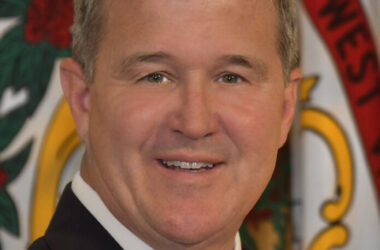WVUToday
MORGANTOWN, W.Va. — West Virginia University, through it’s WVUToday news and resource service, has issued the following media advisory:
West Virginia University has more than two dozen experts who can offer insights into different aspects of the Russia-Ukraine war, including faculty and students who have lived in Ukraine.
Below is a listing of experts. See more at https://wvutoday.wvu.edu/
Policy, politics and law
Erik Herron, Eberly Family Professor of Political Science, Eberly College of Arts and Sciences Department of Political Science. Herron has traveled extensively over decades to conduct research in Eastern Europe and Eurasia, including multiple election observation missions specifically to Ukraine. In all, he has visited the country 19 times. Herron’s research includes studying the vulnerability of states that border a hostile, larger power, specifically Russia, and how that proximity affects the ability of those countries to provide basic services to their people.
Email: [email protected]
(Include Jessica McGee, Director of Marketing and Communications, Eberly College of Arts and Sciences, [email protected] on correspondence.)
Pat McGinley, Charles H. Haden II Professor of Law, WVU College of Law. For more than 20 years, McGinley traveled to Ukraine, helping the country build and maintain a democracy, noting “how easily democracy can slip away from us if we do not hew to the rule of law.”
Email: [email protected]
(Include James Jolly, Director of Marketing and Communications, WVU College of Law.)
Paolo Farah, associate professor and coordinator, Eberly College of Arts and Sciences Interdisciplinary Research Collaborative on Global Challenges and Local Responses Initiatives, John D. Rockefeller IV School of Policy and Politics, Department of Public Administration. Farah is also a member of the board for the European Society of International Law.
Email: [email protected]
(Include Jessica McGee, Director of Marketing and Communications, Eberly College of Arts and Sciences, [email protected] on correspondence.)
Boris Barkanov, teaching assistant professor, Department of Political Science, Eberly College of Arts and Sciences. He studies the political development of the great powers and how this shapes domestic and global politics and policy results in energy, finance and security. He’s interested in Russia and the other states of the former Soviet Union, China, the EU and its member states (especially Germany and France) along with Japan. Russian is one of the four languages he speaks. He wrote his dissertation on the domestic factors shaping Russian energy policy since the late Soviet period.”
Email: [email protected]
(Include Jessica McGee, Director of Marketing and Communications, Eberly College of Arts and Sciences, [email protected] on correspondence.)
David Hauser, teaching assistant professor, Department of Political Science, Eberly College of Arts and Sciences. Hauser’s research and teaching focus on international conflict and range from the origins of Great Power conflicts and interventions to the dynamics of the 21st Century conflicts. He can provide context for ongoing developments.
Email: [email protected]
(Include Jessica McGee, Director of Marketing and Communications, Eberly College of Arts and Sciences, [email protected] on correspondence.)
John Kilwein, associate professor, Eberly College of Arts and Sciences Department of Political Science. Kilwein’s teaching and research interests include judicial politics, public law and public policy. He can speak about the potential effects of the Russian invasion of Ukraine on President Joe Biden’s domestic agenda, specifically in relation to U.S. Senator Joe Manchin (D-W.Va.).
Email: [email protected]
(Include Jessica McGee, Director of Marketing and Communications, Eberly College of Arts and Sciences, [email protected] on correspondence.)
Jay Krehbiel, assistant professor of political science, Eberly College of Arts and Sciences. Krehbiel’s research focuses on comparative political institutions with an emphasis on western Europe and the European Union. In part, he can address the responses of other countries in the region to Russia’s invasion of Ukraine.
Email: [email protected]
(Include Jessica McGee, Director of Marketing and Communications, Eberly College of Arts and Sciences, [email protected] on correspondence.)
Economy and energy
Olga Bruyaka, associate professor, management, John Chambers College of Business and Economics, is a Ukraine native who can explain the human toll of the invasion and the impact on global businesses and economies. She teaches courses in strategic management and global business communication. Bruyaka has also studied and worked in Ukraine.
Email: [email protected]
(Include Jake Stump, Director of Research Communications [email protected] on correspondence.)
Alexander Kurov, Fred T. Tattersall research chair in finance and professor, John Chambers College of Business and Economics, can speak about the effect of the war in Ukraine on financial and commodity markets. His research has been featured in international media including the Wall Street Journal, Financial Times and Bloomberg. He teaches courses in investments, derivative securities, quantitative investment analysis, and energy finance.
Email: [email protected]
(Include Jake Stump, Director of Research Communications [email protected] on correspondence.)
Scott Schuh, associate professor, economics, John Chambers College of Business and Economics, conducts research on and teaches macroeconomics and monetary economics. Schuh, who worked 26 years as an economist at the Federal Reserve, can address issues surrounding macroeconomic forecasting, monetary/fiscal policy, exchange rate and sanctions.
Email: [email protected]
(Include Jake Stump, Director of Research Communications [email protected] on correspondence.)
John Saldanha, Sears chair in global supply chain management and associate professor, John Chambers College of Business and Economics, can speak about disruptions to the supply chain. Saldanha has a decade of experience serving on a variety of cargo vessels around the world. He teaches supply chain management, logistics and distribution and supply chain analytics.
Email: [email protected]
(Include Jake Stump, Director of Research Communications [email protected] on correspondence.)
Ednilson Bernardes, professor and program coordinator in global supply chain management, John Chambers College of Business and Economics, can also discuss supply chain issues. Bernardes spent time in the Brazilian Air Force ad worked in the air transportation sector prior to coming to WVU.
Email: [email protected]
(Include Jake Stump, Director of Research Communications [email protected] on correspondence.)
Bingxin Li, associate professor, finance, John Chambers College of Business and Economics, researches and teaches courses on energy finance and financial risk management. She is also a faculty member on the Center for Innovation in Gas Research and Utilization.
Email: [email protected]
(Include Jake Stump, Director of Research Communications [email protected] on correspondence.)
Immigration and global perspectives
James Friedberg, Hale J. and Roscoe P. Posten Professor of Law, WVU College of Law. Friedberg is the founder of the WVU Immigration Law Clinic and teaches immigration law, international law and international trade.
Email: [email protected]





